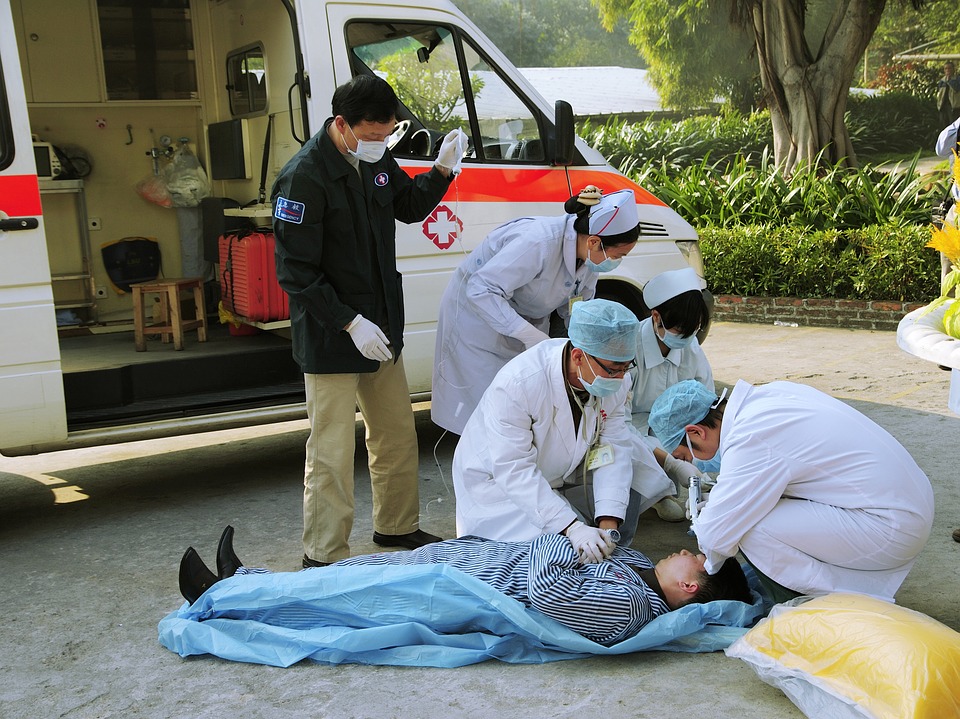Key Difference – Crisis vs Emergency
Crisis and emergency are two words that typically refer to crucial, unstable or dangerous situations. A crisis can be simply defined as a decisive and unstable situation whereas an emergency is a situation that poses an immediate risk to life and property. The key difference between crisis and emergency is that an emergency requires immediate interventions and assistance whereas a crisis may or may not require intervention.
What is a Crisis
A crisis is an event that leads to an unstable or crucial time. Crisis is defined by the American Heritage dictionary as “a crucial or decisive point or situation, especially a difficult or unstable situation involving an impending change” and by the Oxford dictionary as a “time of intense difficulty or danger”. Crises can also be described as negative changes that take place in the security, political, economical, environmental and societal situation of a country. Crises are always unexpected and cause an uncertainty. They also cause threats or obstructions to important goals.
Crises are often linked with the concept of stress since they are unstable and sometimes hazardous events. Crisis can also refer to a traumatic change in a person’s life; for example, mid-life crisis. The following example sentences will help you to understand these nuances of the word crisis.
She couldn’t attend the conference since she was having a family crisis at that time.
The new CEO saved the company from a financial crisis.
The prices of essential goods rose drastically since the country was in an economic crisis.
The assassination of the president put the country in a political crisis.

Financial Crisis
What is an Emergency
An emergency is a situation that poses a serious and immediate risk to health, life or property. It is defined as “an unforeseen combination of circumstances or the resulting state that calls for immediate action” in the Merriam-Webster dictionary and “serious, unexpected, and often dangerous situation requiring immediate action” by the Oxford dictionary. Look at the following examples to understand the meaning of emergency more clearly.
Jake’s ability to think quickly in an emergency saved all their lives.
The government declared a public health emergency.
He was called back home due to a family emergency.
You should always dial 911 in case of an emergency.
There is no universal rule to handle medical emergencies in flights.
The word emergency always implies that it requires urgent intervention. Natural disasters such as tsunamis, floods, and tornados can be classified as emergencies since victims of such incidents need urgent assistance. Major road accidents, strokes, heart attacks, outbreaks of diseases such as Cholera and Ebola are also examples of emergencies. People usually call the police, fire service and emergency medical services (ambulance, paramedics, etc.) in case of emergencies.

What is the difference between Crisis and Emergency?
Crisis vs Emergency | |
| A crisis is a decisive, difficult or unstable situation that involves an impending change. | An emergency is a situation poses a serious and immediate risk to health, life or property, which often requires urgent intervention. |
Implications | |
| A crisis is a negative change. | An emergency is a situation that needs immediate intervention. |
Usage | |
| Crisis can refer to negative changes that take place in the security, political, economic, environmental and societal situation of a country. | Emergency can refer to natural disasters, major accidents or medical emergencies such as heart attacks or outbreak of a disease. |
Image Courtesy:
“Financial Crisis Headline Montage (ping news)” by pingnews.com (CC BY-SA 2.0) via Flickr
“1057706” (Public Domain) via Max Pixel
ncG1vNJzZmivp6x7pbXFn5yrnZ6YsqOx07CcnqZemLyue8OinZ%2Bdopq7pLGMm5ytr5Wau26v0aKqoqtdlruledWsZJ6llae0prrCsmY%3D